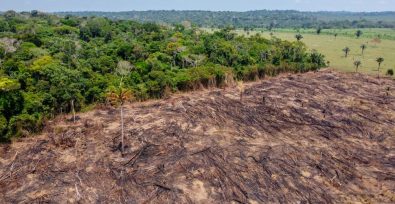Kenyans, Ugandans, and Ethiopians are being lured into modern slavery in Myanmar. Many believe they are taking legitimate jobs abroad but instead are forced into the cyber slavery industry. Survivors like Duncan Okindo are sold on the promise of work, only to be trafficked to south-east Asia.
“I broke completely…”
Okindo paid 200,000 Kenyan shillings (£1,150) to a recruitment agency to get a job as a customer service agent in Bangkok. Soon after arriving, Okindo and six others had their passports confiscated and were transported across the border to Myanmar, where they were confined to the KK Park compound guarded by armed militia.
For three months, He was forced to send thousands of messages from fake social media profiles to scam US real estate agents into cryptocurrency fraud. Susan Wafula*, another survivor says she was forced to do romance scams. Okindo said in an interview with The Guardian:
It was hell on Earth, … I broke completely, to the point of losing hope entirely.
Okindo describes violent punishments for failing targets, including beatings and being locked freezing-cold rooms without food. Others endure electric shocks and sexual abuse by the Chinese criminal gang who run the center, he says. Okindo has since taken legal action against the recruitment agency and staff, accusing them of facilitating his slavery and trafficking. A Nairobi court has issued a temporary order barring the agency from recruiting workers for overseas jobs.
The prevalence of cyber scam compounds
The UN estimates at least 120,000 people are trapped in Myanmar’s cyber scam compounds. In the past four years, the number of compounds has increased from 11 to 26 along the border with Thailand. Experts say that after Chinese crackdowns on scams targeting its citizens, criminal groups are now focusing on victims in the US and Europe. As a result, some trafficking networks are recruiting English-speaking, tech-savvy individuals, including many East Africans.
Conditions in home countries fuel vulnerability. High unemployment and limited opportunities in Kenya make offers from recruitment agencies enticing. While public awareness has helped slow recruitments in countries such as India, Okindo and Wafula say there are Kenyans still considering moving to south-east Asia.
Meanwhile, President William Ruto, has promoted labor migration, inadvertently helping traffickers. Internationally, governments often underestimate the scale of scam centers as a human trafficking issue, says Amy Miller, south-east Asia director for Acts of Mercy International, a US evangelical organization supporting trafficking survivors. Miller says:
To me, that’s such ignorance, in not understanding the scale of this and where it will grow to,
Miller also noted that similar schemes are already appearing in countries such as Sri Lanka and Nigeria.
Systemic gaps in rescue efforts
Rescue operations are complex. Thai authorities have worked with east African governments to repatriate thousands of trafficked workers, but costs and logistics remain barriers. Additionally, Uganda and Ethiopia lack embassies in Thailand. Earlier this year, many Ugandans and Ethiopians were left stranded at the Myanmar-Thailand border due to delays in repatriation. Those rescued are only released into Thai custody when their government of origin agrees to pay for their repatriation.
Traffickers exploit these diplomatic gaps. Jason Tower from the Global Initiative Against Transnational Organized Crime explains that traffickers claim “their own governments don’t care about them” to turn people into “money-making machines.”
Survivors like Okindo and Wafula now advocate publicly about cyber slavery, helping others pursue justice and avoid trafficking. Wafula recalls:
I was in a cell just so I could be determined to be a trafficking victim and get my freedom,” … “If I hadn’t, I’d have rotted away there by now.
*Name changed to protect identity







Freedom United is interested in hearing from our community and welcomes relevant, informed comments, advice, and insights that advance the conversation around our campaigns and advocacy. We value inclusivity and respect within our community. To be approved, your comments should be civil.
Sometimes my partner is rude to scammers. But I remind him that we cannot know whether they are willing workers or have been trafficked or otherwise have no choice. We should not “shoot” the messenger.
Horrible to see that governments are dragging their feet or not acting at all to stop these horrific crimes!